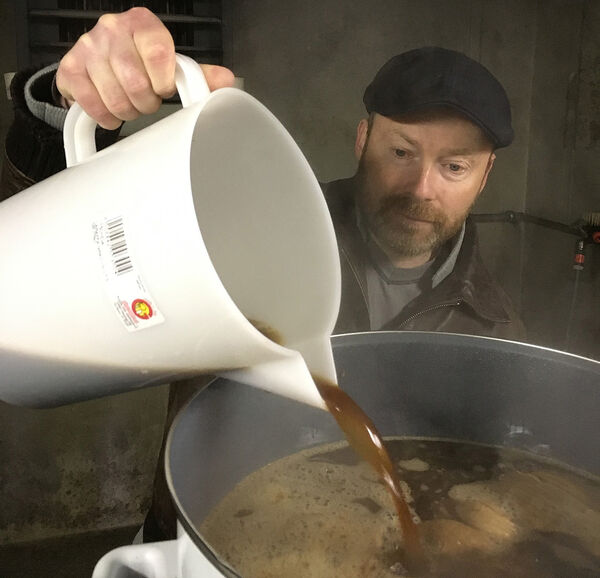George Macdonald - 4 August 2023
Today is International Beer Day. At this year's MACD Conference I gave a little insight into one of my hobbies: brewing beer. For all those who could not be there, I thought that I would go into it again - because brewing beer has more in common with securities trading than you might think.

I started brewing beer with two friends eight years ago. You only need four ingredients:
It sounds like brewing beer is easy, doesn't it? In fact, it's not, because there's a lot to consider and a lot that can go wrong. The raw materials themselves are already very complex when considered individually, and the interrelationships that have to be taken into account in beer production are even more complex. There are vast numbers of different types of raw materials; for example different types of hops or roasted and unroasted barley. Even the water is different, depending on where you brew and where you get it from. There are countless combinations of ingredients to make a beer, and thousands of types of beer, which in turn differ in how they are made.
The second complex point is the process of brewing beer itself. Basically, beer is brewed as follows: First, you heat the barley. During this process, the barley is converted into sugar by various enzymes. Once the liquid has cooled down, you add yeast, which in turn converts the sugar into alcohol through fermentation, producing CO2. Any change in this process can have a big impact on the final result. Different heating temperatures of the wort, for example, have an influence on the alcohol content and sweetness of the beer, as different enzymes are activated depending on the temperature. There are also different options for fermentation, for example, depending on the yeast strain, it can be top-fermented or bottom-fermented, and the temperature control also exerts a significant influence on the end product. Many things can go wrong when brewing beer, among other things the bottles can explode if the amount of CO2 after bottling is too high. Now to get back to the original question: What does all this have in common with securities trading?
There are also four main ingredients in securities trading:
As with brewing beer, it looks quite simple on the outside, but on closer inspection the facets of securities trading are also very complex. Many regulatory requirements must be met and the stock exchanges also differ from one another. Among other things, there are different liquidity locations for securities, blue chips and mid caps, and the reporting rules are not uniform. In addition, there are a variety of destinations, which in turn have their own technical connectivity. For example, when connecting to a counterparty, different encryption methodologies (e.g. IPSec or TLS) and different implementations of FIX (4.2, 4.4, 5.0) or SWIFT have to be considered. Smooth connectivity and compatibility between the different systems must also be ensured at all times, and the demands on IT security continue to increase, so that the software must be regularly maintained and monitored.
So it turns out that securities trading is not as simple as it seems at first, just like brewing beer. But the longer you study a subject and the deeper you delve into it, the simpler it becomes. In the meantime, I have developed a good understanding for the interrelationships in brewing beer, but it still remains exciting for me because a new beer can be produced with every brewing process due to the different possibilities.
And what about securities trading? Here, too, expertise comes with time. At MACD, we have been developing products and services for electronic trading for more than 20 years and understand the complete trading chain. We work according to the motto: Trading made Simple! Our goal is to reduce the complexity of securities trading for our clients and to bundle the destinations including the different processes.
I hope this digression was interesting. Cheers!